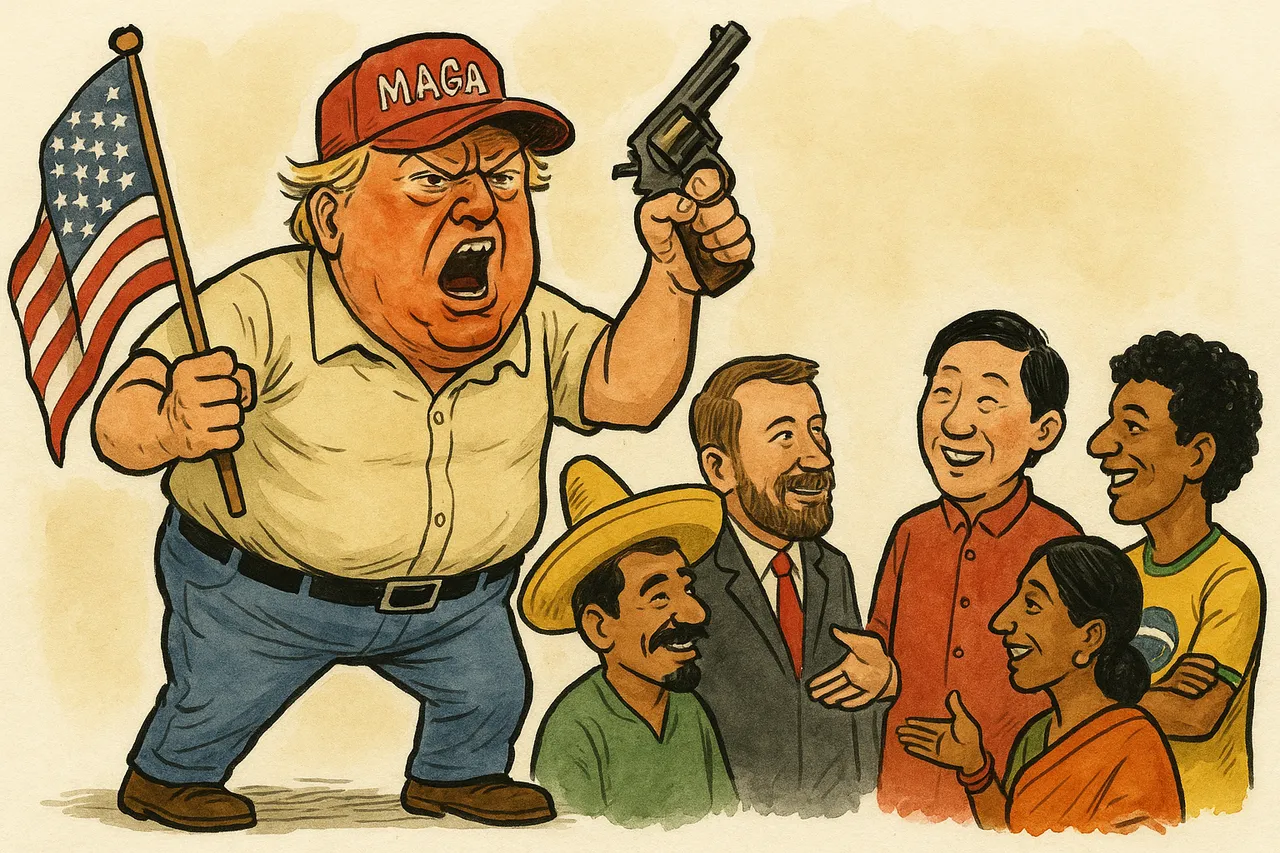
During Donald Trump’s presidency, tariffs became the centerpiece of an economic policy that claimed to protect American workers and revive national industry. But far from fulfilling those promises, the so-called “trade war” ended up burdening everyday citizens, weakening strategic alliances, and accelerating the global isolation of the United States.
The logic seemed simple and appealing: tax foreign products to force countries—mainly China and Mexico—to renegotiate and surrender advantages. But reality told a different story. Tariffs weren’t paid by foreign economies; they were paid by U.S. companies importing those goods, and ultimately by consumers at checkout. The result? More expensive appliances, inflated prices on basic goods, rising construction costs, and a general decline in purchasing power.
Beyond the domestic impact, this clumsy policy eroded international trust. While the U.S. imposed tariffs and sanctions, the world responded: China strengthened its internal market and expanded partnerships; Europe pursued independent paths; and Mexico, long dependent on U.S. trade, began diversifying its exports, looking to Asia and strengthening ties within Latin America.
Trump promised to bring back jobs, yet his tariffs triggered layoffs across key sectors—automotive, agriculture, and tech. The strategy didn’t protect workers; it made production more expensive and discouraged investment. Multinational companies quietly moved their factories abroad to avoid tariffs. Ironically, the offshoring Trump claimed to oppose was reinforced by his own policies.
Internationally, the damage ran deeper. The U.S. broke historic agreements, undermined its leadership in multilateral forums, and was excluded from emerging cooperation platforms like the RCEP. In his attempt to “make America great again,” Trump achieved the opposite: he isolated the country and handed leverage to its rivals—especially China, which moved forward with long-term strategic planning in technology, infrastructure, telecommunications, and global trade.
Today, in a multipolar world reshaping the balance of power, the United States faces a crisis of confidence—at home and abroad. The tariff policy built nothing new. It sowed uncertainty, weakened alliances, and dismantled structures that once cemented American global leadership.
And you—what’s your take on all this?
Was Trump’s tariff policy a necessary move or a historic mistake?
Leave your thoughts in the comments. This is a conversation that matters to all of us—because in an interconnected world, the decisions of a few affect the lives of millions.
Image Made with AI
